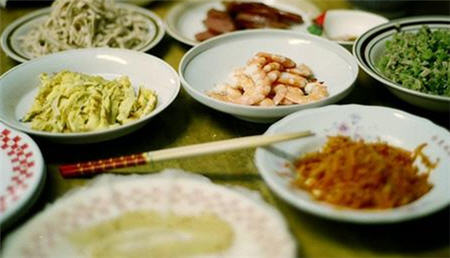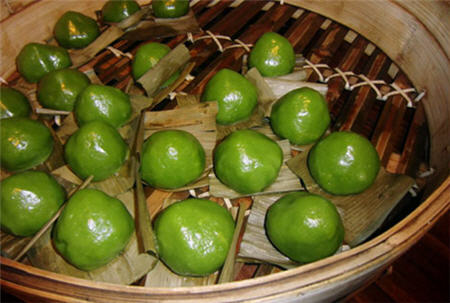In China, the lunar calendar divides the year into 24 solar terms. The solar terms were created thousands of years ago to guide agricultural production and function even now.
The 5th solar term of the year is Clear and Bright (Chinese: Qing Ming), which starts on Apr 5 and ends on Apr 20 in 2015. The words “clear” and “bright” describe the weather during this period. Temperatures begin to rise and rainfall increases, making it a crucial time for plowing and sowing in the spring.
The first day of Clear and Bright is also a traditional Chinese festival, Tomb-Sweeping Day (also called Qing Ming Festival). It is the most important day for people to offer sacrifice to ancestors.
Worshiping Ancestors
On the day of tomb sweeping, people would clear the wild grass around the ancestor's tomb, clean the dust, and then present the food and fresh flowers. These sacrifices are all burned in the hope that the deceased will not lack food and money in the afterlife.
Cold Food Festival
The Cold Food Festival or Hanshi Festival is a traditional Chinese holiday celebrated for one day before Tomb-Sweeping Day. On that day, making fire is taboo and only cold food is available.
Legend has it that Prince Chong'er of the State of Jin endured many hardships while he was exiled from his home state. Once, in order to help the prince who was tormented by hunger, Jie Zhitui cut off the flesh from his thigh and offered it to the prince. Later, when Chong'er became Duke Wen of Jin, he ordered a search for Jie Zhitui who had gone into hiding in the remote mountains with his mother. Jie Zhitui had no political ambitions and refused invitation of the Duke. Duke Wen ordered the mountains to be burned down in order to force Jie out of hiding. However, the fire ended up killing Jie and his mother. Later, Duke Wen, filled with remorse, ordered that using fire on the anniversary of Jie’s death was forbidden and all food was to be consumed cold.

Eating Eggs
In many parts of China, eating eggs during Tomb-Sweeping Day is as important as eating moon cakes at Mid-Autumn Festival. The Chinese folk belief is that eating an egg on Tomb-Sweeping Day will bring good health all year. In China, this custom has lasted for thousands of years.
Willow Branches
Legend has it that Clear and Bright is one of three periods during the year in which ghosts come closest to the world of living men. Buddhists believe that willow branches will drive away unwelcome ghosts and evil spirits. Therefore, willow branches are also known as “ghost terror wood.” One proverb states that if a young lady does not wear a willow branch during the Clear and Bright period, she will soon turn old. Another says: "If one does not wear a willow, he will become a yellow dog after he dies and is reincarnated."
Feasting on Qingtuan
Qingtuan or green cake is very popular snack on Tomb-Sweeping Day. Qingtuan is a kind of round green cake. In order to make the cakes, people mash barnyard grass to squeeze juice from it and mix the flour and juice to a paste. Then they inject black bean filling into the paste and steam them. Pretty and delicate, Qingtuan have a mellow taste and special flavor. Qingtuan are also sacrificed to ancestors on Tomb-Sweeping Day.

Flying Kites
Flying kites is an activity favored by many Chinese during Tomb-Sweeping Day. Kites are not only flown during the day time but also in the evening. Little lanterns are tied to the kite or to the kite string. And when the kites are flying in the sky, the lanterns look like twinkling stars at night.
